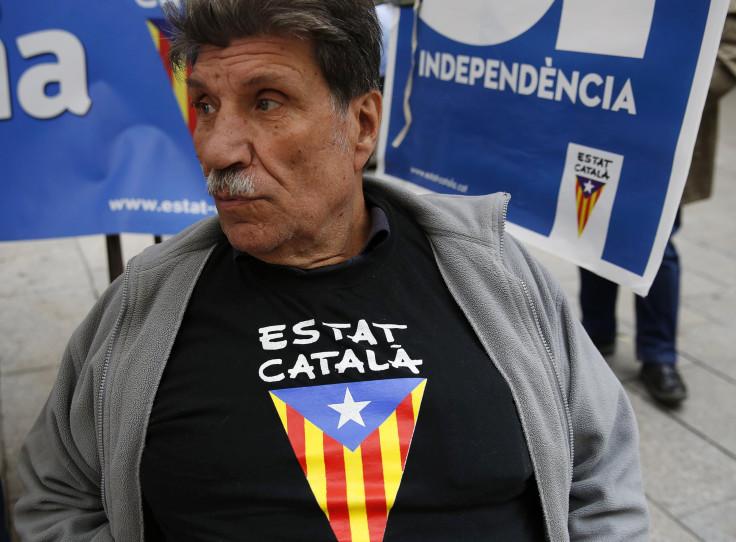Catalan Independence Vote: 80% Want Out Of Spain, Early Results Say

Catalans want independence, according to the provisional results of a nonbinding vote in the autonomous Spanish territory. An overwhelming 80 percent of voters chose to break from Spain in the vote that Spanish Justice Minister Rafael Catala called “fruitless and useless.”
Two million Catalans reportedly voted in what was originally planned by Catalan authorities as a binding referendum but turned into the nonbinding “consultation” to avoid legal trouble with Madrid. Spain’s constitutional court ordered the referendum to be suspended last Tuesday, but Catalan authorities held it anyway. Proponents of Catalan independence say they hope it will pressure Spain to authorize an official vote, like the one held in Scotland in September.
“We have earned the right to referendum,” said Artur Mas, president of the Catalonian government. “Once again Catalonia has show that it wants to rule itself.”
Catalonia is considered an autonomous community by the State of Autonomy of Catalonia. Spain considers Catalonia, Basque Country and Galacia “nationalities,” and Catalonia is governed by a semi-independent body called the Generalitat. Catalonia’s 7.5 million people make up about 16 percent of Spain’s population. Catalonia is one of the wealthiest regions in Europe and regularly contributes more to the central Spanish government than it gets back.
Spanish Prime Minister Mariano Rajoy has insisted he will not allow a referendum during his term.
“This is no referendum or consultation and will have no effect,” he said. “Whilst I am in charge, nothing will threaten Spain’s unity.”
The court ruling meant polling stations were monitored by volunteers and not civil servants. Materials to encourage voting were sent out to the public via a private parcel carrier and not the postal service. Still, the wording of the ballots did not change. It asked two questions: Should Catalonia be a state and should it be independent?
Spain’s rejection of the vote may have bolstered the pro-independence campaign, according to some Catalans.
“I’m in favor of independence, but the important thing is to let people vote one way or another,” said Loli Martos Caracuel, a teacher in Catalonia. “How on earth is it possible for a government to prohibit us from voting? That’s why people are cross.”
Not all Catalans want independence though.
“No, I’m not voting. This will not make a difference and I’m against [independence] anyway,” Roberto Ruiz, 30, said. “I’m Catalan but I’m Spanish too.”
Enthusiastic Catalans and some leaders visited Scotland to support the independence movement during their official independence referendum this year. Scottish voters ultimately chose to stick with the United Kingdom by a vote of 55.3 percent to 44.7 percent. The independence movement in Catalonia has enjoyed strong support for years, but became more widely known outside of Spain during Scotland’s referendum.
© Copyright IBTimes 2025. All rights reserved.





















